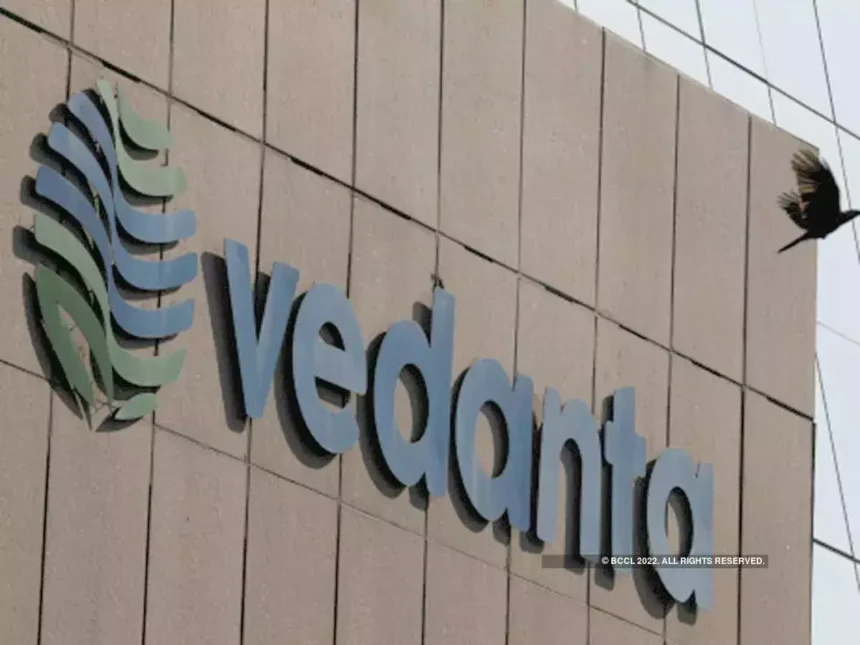Vedanta, an Indian company, has expressed its unwavering commitment to establishing India’s first foundry for semiconductor production. This statement comes in the wake of Taiwanese electronic contract manufacturer Foxconn’s withdrawal from a chip joint venture with Vedanta. Despite this setback, Vedanta remains determined to fulfill Prime Minister Narendra Modi’s vision of developing a robust semiconductor industry in India.
In an official statement, Vedanta emphasized its dedication to the semiconductor fab project and assured stakeholders that it has secured alternative partners to support the venture. The company believes that India continues to play a crucial role in the global semiconductor supply chain realignment.
Vedanta acknowledged the challenges posed by Foxconn’s withdrawal but stated that it has intensified its efforts to attract new collaborators. The company is actively expanding its semiconductor team and has obtained a license for production-grade technology for 40 nm from a renowned Integrated Device Manufacturer (IDM).
The decision by Foxconn to exit the joint venture undoubtedly presented a hurdle for Vedanta. However, the company remains optimistic about the future prospects of the semiconductor industry in India. Vedanta recognizes the significance of establishing a domestic foundry and the positive impact it would have on the country’s technology ecosystem.
India’s Prime Minister, Narendra Modi, has long advocated for the development of a robust semiconductor industry within the country. Such an industry would reduce India’s dependence on imported chips and bolster its position in the global technology landscape. By nurturing a domestic semiconductor ecosystem, India aims to attract investment, foster innovation, and generate employment opportunities in the high-tech sector.
The withdrawal of Foxconn, a prominent player in the electronics manufacturing industry, was undoubtedly a setback. However, Vedanta’s resilience and determination to move forward indicate that the semiconductor project remains on track. The company’s ability to secure alternative partners is a testament to the potential of India’s semiconductor market and the confidence it inspires in investors.
A foundry, or semiconductor fabrication facility, is an essential component of the semiconductor industry. It is a facility where integrated circuits (ICs) are manufactured on a large scale. Currently, India lacks a domestic foundry, which necessitates the import of semiconductors. By establishing its own foundry, India can reduce its dependence on imports and become self-reliant in the production of semiconductors.
Vedanta’s focus on securing a production-grade technology license for 40 nm demonstrates its commitment to adopting advanced manufacturing processes. This technology is crucial for producing state-of-the-art semiconductors that can power a range of devices, from smartphones to high-performance computing systems. By leveraging such cutting-edge technology, Vedanta aims to position India as a global player in the semiconductor industry.
The establishment of a domestic foundry in India has the potential to attract investment from both domestic and international players. It would create a favorable environment for research and development activities, as well as encourage collaboration between academia and industry. Additionally, a robust semiconductor industry would contribute to the growth of ancillary sectors such as electronics manufacturing, telecommunications, and artificial intelligence.
The Indian government has recognized the strategic importance of the semiconductor industry and has introduced several initiatives to promote its growth. These initiatives include production-linked incentives, investment facilitation, and the creation of semiconductor clusters. By partnering with industry leaders and leveraging government support, Vedanta aims to navigate the challenges posed by Foxconn’s withdrawal and realize the vision of an indigenous semiconductor industry in India.
Vedanta’s assertion of its commitment to establishing India’s first foundry for semiconductor production highlights the company’s determination to fulfill Prime Minister Narendra Modi’s vision. Despite the withdrawal of Foxconn from their joint venture, Vedanta has lined up alternative partners and is actively expanding its semiconductor team. The company’s pursuit of advanced manufacturing technologies and licenses reflects its dedication to positioning India as a key player in the global semiconductor supply chain. With the establishment of a domestic foundry, India can reduce its dependence on imported semiconductors, attract investment, and drive innovation in the high-tech sector.









